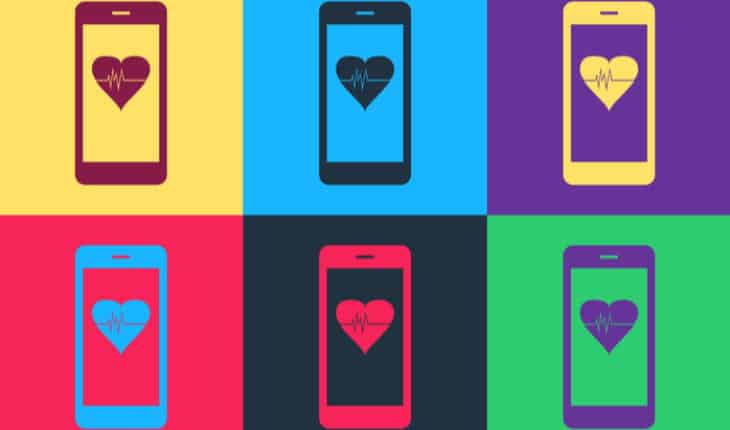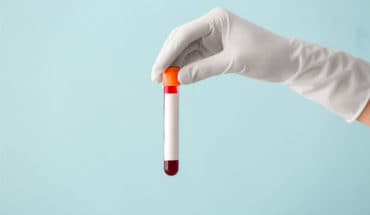CRY: hidden heart conditions in the young: Cardiac Risk in the Young’s annual raising awareness week is 14-22 November 2020. Over 21,000 appointments cancelled due to COVID restrictions leaving people age 14-35 at risk of hidden heart conditions.
A leading heart charity – which would usually provide free heart checks for over 30,000 young people every year in the UK – has warned of the potential impact of having to halt its specialist services over the past 8 months.
The campaign is backed by a family from Surrey whose 14-year-old son was diagnosed with a dangerous and potentially life-threatening heart condition (Wolff-Parkinson White syndrome) at a CRY screening session shortly before lockdown and the suspension of the service. Due to his swift diagnosis – despite displaying no worrying signs or symptoms – he has now been successfully (surgically) treated and back living a normal, safe, and active life (see full story in notes – interview available on request)
Young sudden cardiac death (YSCD) claims the lives of at least 12 seemingly fit and healthy young people every week in the UK. In around 80% of cases of these arrhythmias and heart muscle conditions (cardiomyopathies) there will have been no signs or symptoms – but the vast majority of the underlying and ‘hidden’ issues that cause such fatal cardiac arrests can be identified using a simple ECG test, which is assessed by a specially trained cardiologist.
Dr Steven Cox, CEO of the charity Cardiac Risk in the Young (CRY) which was established 25 years ago to support families affected by YSCD and to help prevent these devastating young deaths, explains;
“CRY stopped screening on March 16th, 2020, as part of the UK’s initial national lockdown measures. This was around the same time that NHS Breast and Cervical screening services were temporarily stopped – although these are now coming back into practice – and understandably there were immediate concerns about ‘footfall’ (we test around 100 people a day at a CRY testing session) and PPE health and safety needs of our medical staff.
“However, now, 8 months on, we have had to cancel over 21,000 screening appointments and we remain uncertain as to when and how we will be able to resume our internationally acclaimed screening service.
“CRY research and international statistics suggest this current hiatus may have already resulted in more than 70 young people NOT receiving a diagnosis of a potentially life-threating condition and the treatment, lifestyle advice or surgery that would reduce their risk of suffering a cardiac arrest. Worryingly, our waiting list of young people who have registered an interest in screening now stands at just under 40,000.
“Every subsequent month that screening events are cancelled or postponed will result in the loss of a further 3,000 appointments and another 10 people being left to live with an undiagnosed cardiac condition that could cause them cardiac arrest and sudden death. It is important to note these figures do not include the 100s of young people who are identified with cardiac conditions through screening which may not be immediately life-threatening, but will lead to serious problems in their fourth or fifth decade of life if they are not identified, monitored and treated.”
“We cannot allow these young people to become part of the devastating “12 a week” statistic.
Dr Cox continues; “We’ve worked really hard to ensure our screening team is appropriately prepared [in terms of PPE], with revised protocols in place [in terms of social distancing and enhanced cleaning] and are ready to get back on the road.
“But what we desperately need – once this second lockdown is eventually eased – is access to suitably large venues. CRY’s families and fundraisers would usually be able to secure the use of schools, sports clubs, 6th form colleges, universities, community centres and church halls etc. at no charge. Understandably, these types of venues cannot currently invite any additional people to come onto the premises.
“We are doing all we can to resume CRY’s screening programme safely, rebooking events and working through our ‘backlog’ – and to ensure that awareness of the importance of cardiac screening in young people does not diminish.”
The majority of CRY’s community screenings are funded by bereaved families, who have been affected by a young sudden cardiac death, so there is no charge to the individual when CRY’s mobile cardiac screening service comes to a local venue. In normal times, CRY-funded screening clinics are also held twice a month at St George’s Hospital, South West London, home to CRY’s pioneering Centre for Inherited Cardiac Conditions and Sports Cardiology.
The CRY screening programme uses a very simple, effective and non-invasive way of diagnosing most cardiac abnormalities. It is a quick, painless and affordable procedure called an electrocardiogram (ECG). If a young person is found to have an abnormality, CRY will also conduct an Echocardiogram (ultrasound) on the same day. To date, over 220,000 young people have been screened by CRY – and many young lives saved.
In Italy, where screening is mandatory for all young people engaged in organised sport, they have reduced the incidence of young sudden cardiac death by 89%. This is because sport – whilst it does not actually cause sudden cardiac death – can significantly increase a young person’s risk if they have an underlying condition.
Professor Sanjay Sharma (St George’s, University of London) is CRY’s Consultant Cardiologist and oversees the screening programme. He concludes;
“Although cancellation of these clinics is completely understandable to minimise the spread of the viral infection, there will be a number of young people who will not receive a diagnosis and treatment of a potentially serious, and probably silent, cardiac abnormality. I therefore really hope these individuals will still be motivated to sign up to be tested again in the future, as soon as we able to resume our services.
Mum Niki Mason (from New Malden, Surrey) asked her husband to take her 14 year old son, Finn, to a free CRY screening session in December last year (both her older teenagers had been tested previously with no problems detected).
For a variety of reasons / changes of plans on the day, they almost didn’t go….but Niki (who works as a Family Support Worker for the SW London-based, Momentum Children’s Charity) just had a “feeling” he had to get checked out (no symptoms at all….just one of those strange mum-gut-feelings). And thank goodness he did as had they had cancelled that appointment – CRY’s fortnightly ‘Saturday’ clinic at St George’s Hospital, London, was already totally booked up for the next few months….and none of us knew back then that all CRY screenings were to be so abruptly cancelled for the foreseeable future.
Finn was diagnosed on the spot by one of CRY doctors with “text-book case” of Wolff-Parkinson-White syndrome (a condition that causes an abnormal heart rhythm which can prove fatal in young people if left unidentified and untreated) and immediately referred to the paediatric cardiology team at the Royal Brompton.
After a series of follow up appointments during the coming months and throughout lockdown, with Finn having to wear ambulatory heart monitors to trace any “episodes” (and which picked up some pretty scary racing heart & irregular rhythms of almost 300 bpm), we then fast forward to September 29th when Finn underwent a 3-hour corrective operation at the Royal Brompton to remove the abnormal electrical pathway. It was a complete success, although Niki explains the hardest part of the procedure was having to wait in the hospital (she wasn’t allowed to leave) alone, as her husband wasn’t permitted into the Brompton due to COVID restrictions. Those 3 hours were pretty agonising…
However, Finn is now deemed “cured” and “safe” with just-one more ECG check-up due soon. He should be back to rugby, cycling and cross country in no time.
Niki says it’s “chilling” and “unbearable” to think how different the outcome could have been had he not gone along to the free CRY screening at the end of last year, in those long gone pre-COVID days. All of the most severe episodes recorded on his ambulatory ECG monitor were whilst doing gentle (as advised during the investigations period) exercise or simply taking his bike out.
Both Niki and Finn are very happy to be interviewed as part of a feature highlighting the importance of proactively screening young, asymptotic people for hidden heart conditions and the impact of the current suspension of the CRY screening programme.
- New lipid-based pathway discovered as key to memory formation - 25th June 2025
- Crucial link could explain how Alzheimer’s takes hold - 25th June 2025
- Understanding Your Mind Can Improve Daily Life - 25th June 2025







